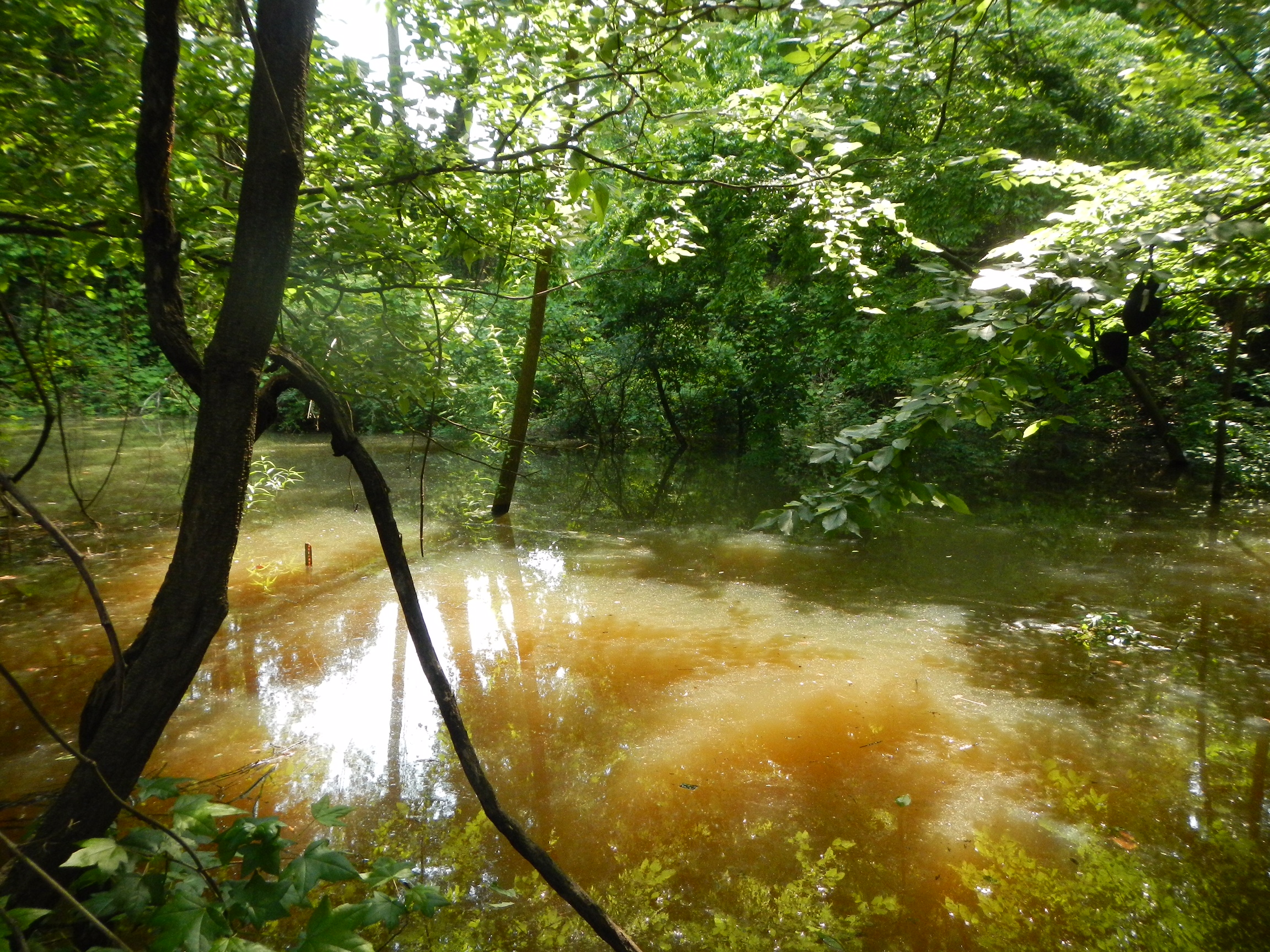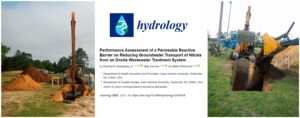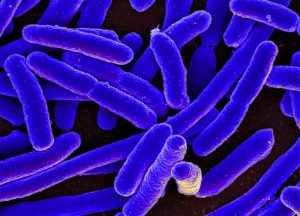Humphrey C, Blackmon J*, Kelley T, O’Driscoll M and Iverson G (2018). Environmental Health Threats Associated with Drainage from a Coastal Urban Watershed. Environment and Natural Resources Research 8(1):52-60.
Abstract
The project goal was to determine if stormwater runoff and the legacy effects of leaking underground storage tanks (UST) posed an environmental health threat along an urban stream, Town Creek (TC). Baseflow and stormflow samples were collected from TC between March and October 2016 for physical and chemical characterization and E. coli analyses. Groundwater seeps and wells near the banks of TC were also sampled for E. coli and benzene analyses. Stormflow concentrations of E. coli were significantly (p < 0.05) elevated relative to preceding baseflow and groundwater concentrations. Overall, 80% of stormflow samples and 45% of baseflow samples exceeded the US EPA recommended standards for E. coli in recreational waters. Benzene was detected in all water samples analyzed and 50% of samples collected from a seep on the western bank of TC exceeded the maximum contaminant level. Concentrations of benzene emitted to air from contaminated soil exceeded short term exposure standards 75% of times sampled. Results suggest the drainage from TC may be a threat to environmental health. Implementation of stormwater control measures is suggested to reduce the delivery of runoff and E. coli to TC. Remediation of groundwater contaminated by leaking underground storage tanks is also suggested.
*Jamil Blackmon is an alumnus of our MS Environmental Health program.



